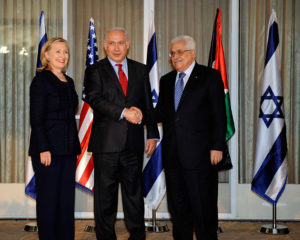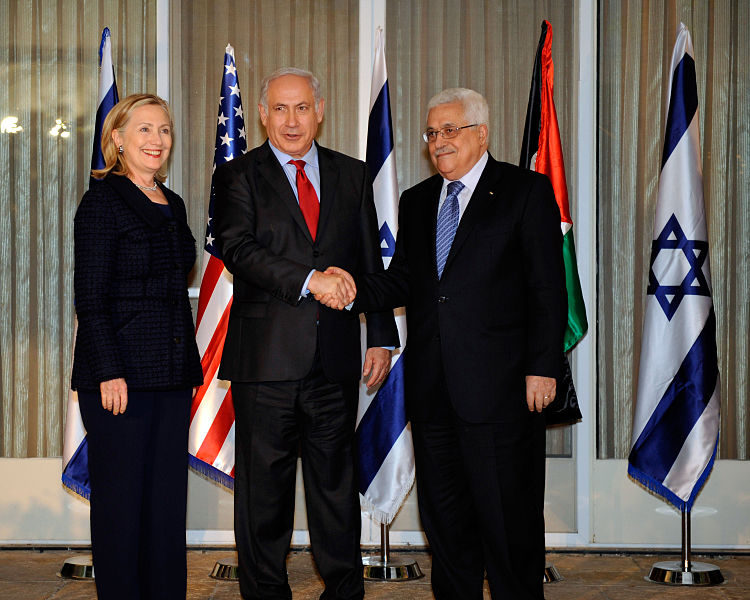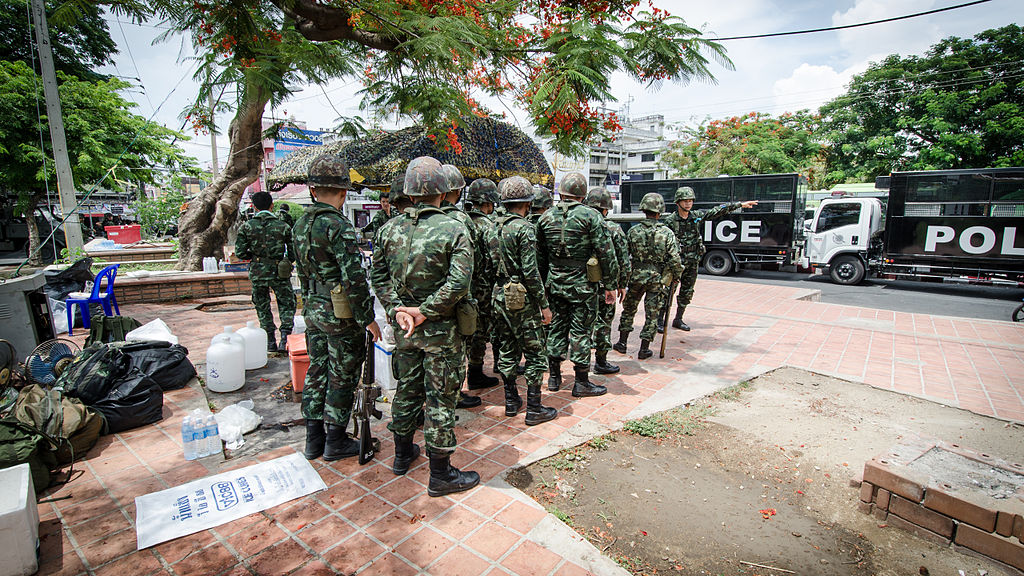
The first thing one notices when walking around the Israeli-controlled Area C of the West Bank is the litter. Children walk down the street to the neighborhood playground, making sure to avoid empty bottles and deserted chairs. Some of the adults spend time picking up what they can, but in the face of the mountain of trash, the effort can seem futile. They appear at once uneasy and used to the situation.
Only a couple of hundred feet away, however, the trash stops. Here, the streets are clean, the pavement smooth. Those living in the area, whether in the dirty or clean parts, convey acceptance, resignation, or both. But to the outsider, it is staggering. While one community appears cared for, protected, and safe, the other looks as abandoned as the accumulated trash in their streets. How can two different worlds exist in such proximity to one another?
Unfortunately, this stark contrast is all too common in the areas affected by the enduring occupation conflict between Israelis and Palestinians. To be clear, the difference in cleanliness between the Palestinian community and the nearby Israeli settlements is not a reflection of their respective residents’ willingness to clean. The actual reason is both more mundane and more sinister: both communities pay taxes to the Israeli government (a result of the Oslo Accords, which designated a certain area in the West Bank, Area C, as occupied territory under Israeli control), and yet the Israeli government offers virtually no government services — including public cleaning services — in the Palestinian neighborhoods. As B’Tselem, an Israeli non-profit dedicated to human rights, reports, in Area C, the Israeli government essentially ignores “the needs of the Palestinian population.”
Making matters worse, the Palestinian Authority offers virtually no help either. Here in Area C, which covers 60 percent of the West Bank, the Palestinian people are left to fend for themselves, isolated and abandoned. The two seemingly rival governments allow the trash – and with it a feeling of helplessness – to pile up, unconcerned with the people living amongst it.
This is not the only instance in which the Israeli government neglects the rights of Palestinians living under its control. For example, in places like Hebron, the largest city in the West Bank and home to around 700 Israeli settlers and 215,000 Palestinians, most of the main streets and resident buildings are forbidden to Palestinians (the Israeli Defence Force {IDF} calls this process “sterilizing” the streets), who additionally cannot conduct business, find work, or travel without obtaining a time-consuming permit from the IDF. Further, the IDF frequently grants settlers immunity when they beat up, or even kill, Palestinian citizens, sometimes teens and children, either because they agree with the attack or for fear of upsetting the politically powerful settlers. Indeed, in many settlements, the IDF seems to have increasingly become a private-settler militia. They indefinitely detain Palestinians, including ones who have never been accused of crimes, for days, or even weeks, unconstitutionally blocking them from seeing their lawyers. Israeli prisons have consistently been accused of torture.
This is all illegal and morally disturbing, as is, frankly, the entire Israeli occupation. Also disturbing, however, is that neither could be sustained without both the direct and indirect, explicit or implicit complicity of the Palestinian National Authority (the PA), the Fatah-controlled Palestinian organization that governs Areas A and B of the West Bank as per the Oslo Accords, and Hamas, the militant group that has governed the Gaza Strip since the 2006 parliamentary elections. To fully grasp how both both Fatah, the Palestinian nationalist party, and rival Islamist party Hamas owe their stay in power to Israeli complicity and aid, one must delve into the complex web of factors that binds these seemingly opposing groups to one common interest: maintaining the status-quo.
During the initial Palestinian uprising known as the first Intifada (1987-1991), the Israeli government realized that having to use their own security force to quell the unrest came at too high a political and fiscal price. One way out was to establish a Palestinian governing entity that would be responsible for security — its own (except against Israel), but also (partly) Israel’s. This recognition, in part, led to the Oslo Accords, a set of agreements between the Israeli government and the Palestine Liberation Organization (PLO) signed in Washington DC in 1993. In addition to other negotiated outcomes, the Accords created the Palestinian Authority (PA), an interim body born out of the PLO and charged with (relative) self-governance in the designated parts A and B of the West Bank, and the Gaza Strip. This meant tasking the PA with the creation and maintenance of the necessary civil infrastructures in the Palestinian territories: health, education, and most notoriously, security.
While international law dictates that the “occupying power” must pay for the security, health, education, and sanitation of the occupied, the Israeli government had managed to outsource a large portion of the occupation to the PA, and thus, through taxes, to the occupied Palestinians themselves. With Israel content unburdening themselves of a financial obligation and the PA eager to consolidate the political power the Oslo Accords had granted them, Palestine had become burdened with all the strains of sovereignty without any of its benefits.
Over two decades later, little of the Oslo agreement remains other than that. Worse yet, independent reports indicate that the PA has been rife with corruption, and maintain a security personnel that is almost as ruthless as the Israeli security force, often arbitrarily arresting Palestinian activists and at times even torturing them.
As a party with both a reliance on Israeli aid and a growing unpopularity (in September of 2017, a poll showed that two-thirds of Palestinians wanted the resignation of President Abbas, and that half of the public viewed the PA as a burden on the Palestinian people), the PA often takes measures to stifle any potential political competition, and especially those who speak out against the group’s relationship with Israel. Recently, this led to the arrest of popular human rights activist and Israeli-critic Issa Amro, the founder of Youth Against Settlement, a non-violent Palestinian resistance group located in Hebron. Amro, whose growing profile has led to a relationship with Senator Bernie Sanders, has spent the last decade cycling in and out of Israeli and Palestinian prisons, despite never having engaged in violent behavior or rhetoric. The devil’s bargain for the PA is clear: to maintain power, they have consented to the replacement of a sovereign state with an undemocratic quasi-police state funded and maintained by its occupiers.
The PA’s consolidation of power seems likely to continue, as the Israeli government is as reliant on the PA as the PA is on Israel; hence the murky web of interdependence outlined above. This may come as a shock to pro-Israeli Westerners who believe Netanyahu when he calls the PA a terrorist organization and dramatically threatens its funding. In fact, as the New York Times recently reported, one of Trump’s recent Twitter tirades threatening to cut Palestinian aid had the Israeli government legitimately nervous. Tzipi Livini, a former Israeli foreign and justice minister in the right-wing Zionist Union party, tweeted, “someone has to explain to Trump what the real Israeli interest is.” It is against Israel’s security and economic interests to cut ties with the PA, which, as documented, helps keep the Palestinian population controlled and complacent.
The Israeli government, and Netanyahu, are aware of this, no matter their rhetoric. As Senator Lindsey Graham said, “I cannot tell you the number of times the Israelis have engaged me to try and stop an emotional reaction by the Congress to terminate aid to Palestine.” Consider that on the same day that Fatah announced its unity government with Hamas (which led Netanyahu to declare that Fatah should no longer be recognized), the Israeli government finally sent the 500 million shekels of tax revenue that it owed the PA. This goes to show that, despite occasionally flexing its rhetorical muscles against the PA for domestic and international effect, the Israeli government is willing and eager to help the party maintain power. Without the PA, it would not only have to foot the whole bill of the occupation and directly handle all security, but face the prospect of a more radical, non-compliant Palestinian movement.
No discussion of the Israeli-Palestinian conflict is complete without mentioning the US. The US government gives Israel a staggering $3.8 billion of aid each year, specifically to bolster its military. This assistance — provided despite Israel’s violations of Palestinian human rights — perpetuates the occupation. Somewhat ironically, the US also provides the PA with approximately $400 million a year. Perhaps this would be welcome aid if Palestine were a sovereign state that could use the money for social services, and the PA a completely independent political organization ; in reality, these funds largely help bankroll and subsidise the occupation, as they primarily go to the security sector. Furthermore, because of the interdependence of the two economies and Israel’s taxation system’, research shows that at least 78% percent of international aid to Palestinians ends up in Israel’s economy. The opposite is, of course, not true.
Equally important is the less direct but far more deadly interdependent relationship between Israel and Hamas. The Israeli military can use any Hamas attack, and sometimes even simply Hamas rhetoric, to justify security crackdowns and/or military intervention in Palestinian territories. Conversely, Hamas’ popularity feeds on the constant Israeli threat and a feeling of national hopelessness. During peace talks, when at the very least the perception amongst Palestinians is that the occupation might end, Hamas popularity and membership inescapably declines. As Aaron David Miller, a Middle East expert at the Woodrow Wilson Center, wrote, these are “two parties who can’t seem to live with one another — or apparently without one another either.” Here again, maintaining the tense and bloody status quo allows both parties to maintain and slowly increase their respective power.
So what does this all amount to? In theory, the confluence of aims of these three actors — Israel, the PA and Hamas — might provide hope for mutual understanding and thus move along the peace process. In reality, it only further entrenches the status quo. The Israeli government will continue to rhetorically call for withholding PA funding and accuse it of complicity in violence, while privately benefiting from its existence. The PA will challenge Israeli policy at the UN, plea for an independent and sovereign state, put up inspiring posters that says “We are All Gaza”, all while maintaining its role as providing security for Israel and managing the occupation. Hamas will conduct terrorist operations, Israel will condemn them, but both will benefit from the existence of the other to justify their own policies.
The interdependence among all three helps perpetuate a deadly standstill. Alienated and forgotten in this tangled spider-web of a political trinity are the Israeli citizens clamoring for real peace, and, most of all, the Palestinian people, living under occupation and ill served by their leaders. Barring a drastic and unprecedented change in heart and policy by the Israeli (and U.S.) government, a change in Palestinian governance — ideally with a non-compliant and non-violent replacement who refuses to help fund and maintain Israel’s occupation — may be the only route left for eventual Palestinian independence.
The views expressed by the author do not necessarily reflect those of the Glimpse from the Globe staff, editors or governors.







